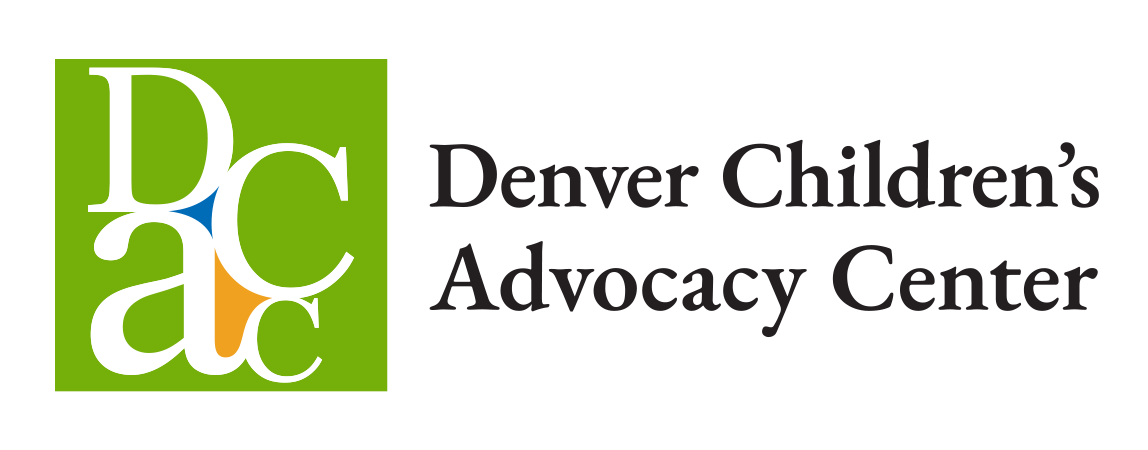Restore Childhood

We use a developmentally sensitive, biologically respectful approach to coordinated health and mental health care for child trauma victims and their non-offending family members. Intensive, coordinated care management draws in all people involved in the child’s life – family members, foster parents, social services caseworker, child care providers, prosecutors, victim advocates, doctors, teachers, and school personnel.
DCAC’s Clinical Process:
- Phone Intake: Family calls DCAC and completes a phone intake with the Intake and Data Specialist .
- Orientation: Once the case is accepted, the family will schedule and attend an orientation with the Intake and Data Specialist.
- Assigned to Therapist: Once the orientation is complete, the Director of Assessment and Treatment assigns the case to one of our Child & Family Therapists.
- Parental Assessment: The therapist sets up a one-on-one appointment with the parent or caregiver.
- Individual, Group, or Family Therapy: The therapist, with the caregivers, determines when to begin treatment.
To receive more information about DCAC’s treatment program, please contact Marlen Montanez, DCAC’s Community Mental Health Coordinator at 303-996-8598.

Immigrant Family Initiative
As a part of our mission to restore childhood, we have historically served immigrant families due to the difficulty that can come alongside in the immigrant experience.
Assessment and Mental Health Treatment
As a result of severe stress and/or traumatic experiences, your child may develop some of the following symptoms:
• General fearfulness/new fears
• Helplessness, passive, low frustration
• Restless, impulsive, hyperactive activity
• Physical symptoms (headache, etc.)
• Difficulty identifying what is bothering them
• Inattention, difficulty problem solving
• Daydreaming or dissociation
• Irritability
• Sexualized behavior
• Loss of recent developmental achievements
• Repetitive/post-traumatic play
• Talking about the traumatic event and reacting to reminders trauma triggers
• Sadness/depression
• Poor peer relationships and social problems (controlling over permissive)
What are Evidence-based and Research-based Treatments?
Evidence-based practices not only integrate the best available scientific information, but also allow the therapist to individualize the interventions with a sensitivity to the personality and cultural characteristics of the child and his or her family. All staff in DCAC’s Child and Adolescent Assessment and Treatment Program are master’s level prepared therapists, either with licensure or supervised by licensed clinical supervisors
All DCAC therapists participate in ongoing training for the effective delivery of evidence-based treatments including:
Eye Movement Desensitization and Reprocessing (EMDR) is a therapeutic technique, using bilateral stimulation that allows individuals who have been exposed to disturbing, and possibly traumatizing events to activate the nervous system’s natural mechanisms for processing the memories. The individual does not forget the experience but is able to integrate it so it can be recalled instead of being re-experienced.
Trauma-Focused Cognitive Behavioral Therapy is a components-based approach to working with children and adolescents that integrates trauma-sensitive interventions, cognitive behavioral principles of gradual exposure, integrating attachment, development and family based models in order to address symptoms of post-traumatic stress disorder, depression and anxiety associated with exposure to overwhelming life events.
Alternatives for Families-Cognitive Behavioral Therapy (AF-CBT) is an intervention for families who struggle to manage anger, conflict and aggression. The interventions increase use of positive coping, self-control, effective disciplinary strategies and constructive family problem solving and communication.
Child-Parent Psychotherapy (CPP) is a relationship-based treatment for parents and young children, which aims to help restore normal developmental functioning in the wake of domestic violence and trauma. CPP concentrates on restoring the attachment relationships that are negatively affected by violence, establishing a sense of safety and trust within the parent-child relationship.
The Problematic Sexual Behaviors-Cognitive Behavioral Therapy (PSB-CBT) family treatment model addresses problematic sexual behavior in school-aged children (ages 7-12). This outpatient family treatment program is recognized and supported by research as being highly effective in reducing or eliminating problematic sexual behavior in youth. The programs work with caregivers and the youth to increase safety and communication as well as promote healthy, positive choices in youth with PSB.
Become a
Donor
There are many ways to support our mission: Donate your vehicle, take advantage of employer-matched giving, take a look at our wish list, and more!

